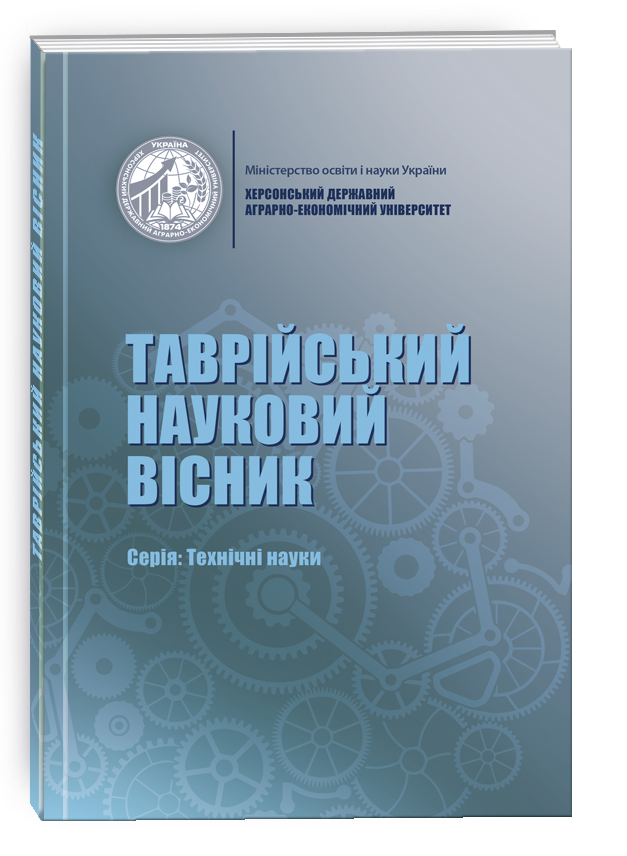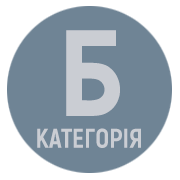INTELLIGENT PRODUCTION LINE CONTROL SYSTEMS IN THE FOOD INDUSTRY BASED ON MACHINE LEARNING
DOI:
https://doi.org/10.32782/tnv-tech.2025.1.40Keywords:
production automation, predictive analytics, cyber-physical systems, quality control, digital transformationAbstract
The possibilities of introducing intelligent production process control systems in the food industry, taking into account modern challenges and automation needs, are investigated. The relevance of the study is due to the need to increase the efficiency of production lines, reduce costs, improve quality control and compliance with international food safety standards, in particular ISO 22000, HACCP, BRC Global Standard, FSSC 22000 and IFS. It has been established that traditional approaches to automation do not provide sufficient flexibility and adaptability to changes in technological parameters and market conditions, which necessitates the implementation of systems based on machine learning, predictive analytics, and IoT.The purpose of the study is to develop approaches to automation of production lines in the food industry by integrating machine learning, robotics, and IoT to improve the efficiency of production processes. The methodological basis is based on analytical and comparative research methods that allowed us to evaluate the effectiveness of existing automation approaches, as well as modeling an adaptive control system.The results of the study confirm that the integration of IoT sensors, machine learning algorithms, and predictive analysis can significantly improve the accuracy of monitoring and control of production processes. The main problems of implementing such systems are identified, including the high cost of modernization, the complexity of integration with existing infrastructure, the need for qualified personnel and compliance with regulatory requirements. It is proved that the gradual introduction of intelligent systems using predictive analytics to monitor the technical condition of equipment and prevent failures can reduce risks, minimize production losses and improve product quality.Prospects for further research include the development of deep learning algorithms to improve the accuracy of the analysis of production parameters, as well as the study of the economic aspects of implementing such technologies in various segments of the food industry.
References
Kollia I., Stevenson J., Kollias S. AI-enabled efficient and safe food supply chain. Electronics. 2021. Vol. 10, № 11. Article 1223. DOI: https://doi.org/10.3390/ electronics10111223 (date of access: 14.02.2025).
Drijver E., Pérez-Dattari R., Kober J., Santina C. D., Ajanović Z. Robotic Packaging Optimization with Reinforcement Learning. 2023 IEEE 19th International Conference on Automation Science and Engineering (CASE), Auckland, New Zealand. 2023. P. 1–7. DOI: 10.1109/CASE56687.2023.10260406 (date of access: 14.02.2025).
Bai G. Research on real-time optimization technology of intelligent manufacturing based on learning algorithm. Procedia Computer Science. 2024. Vol. 243. P. 1189–1195. DOI: https://doi.org/10.1016/j.procs.2024.09.140 (date of access: 14.02.2025).
Usuga Cadavid J. P., Lamouri S., Grabot B., et al. Machine learning applied in production planning and control: A state-of-the-art in the era of Industry 4.0. Journal of Intelligent Manufacturing. 2020. Vol. 31. P. 1531–1558. DOI: https://doi.org/10.1007/ s10845-019-01531-7 (date of access: 14.02.2025).
Oluyisola O. E., Bhalla S., Sgarbossa F., et al. Designing and developing smart production planning and control systems in the industry 4.0 era: A methodology and case study. Journal of Intelligent Manufacturing. 2022. Vol. 33. P. 311–332. DOI: https://doi. org/10.1007/s10845-021-01808-w (date of access: 14.02.2025).
Wang J., Ma Y., Zhang L., Gao R. X., Wu D. Deep learning for smart manufacturing: Methods and applications. Journal of Manufacturing Systems. 2018. Vol. 48. P. 144–156. DOI: https://doi.org/10.1016/j.jmsy.2018.01.003 (date of access: 14.02.2025).
García-Esteban J. A., Curto B., Moreno V., González-Martín I., Revilla I., Vivar-Quintana A. A digitalization strategy for quality control in food industry based on Artificial Intelligence techniques. 2018 IEEE 16th International Conference on Industrial Informatics (INDIN), Porto, Portugal. 2018. P. 221–226. DOI: https://doi. org/10.1109/INDIN.2018.8471994 (date of access: 14.02.2025).
Kumar I., Rawat J., Mohd N., Husain S. Opportunities of artificial intelligence and machine learning in the food industry. Journal of Food Quality. 2021. Vol. 2021, № 1. Article 4535567. DOI: https://doi.org/10.1155/2021/4535567 (date of access: 14.02.2025).
Zhu L., Spachos P., Pensini E., Plataniotis K. N. Deep learning and machine vision for food processing: A survey. Current Research in Food Science.2021. Vol. 4. P. 233–249. DOI: https://doi.org/10.1016/j.crfs.2021.03.009 (date of access: 14.02.2025).
Baliuta S., Kopylova L., Kuevda V., Kuievda I., Lytvyn I. Synthesis of intelligent power management system of food manufacturing processes with power consumption prediction. Ukrainian Journal of Food Science. 2020. Vol. 8, № 1. P. 105–123. DOI: https://nuft.edu.ua/doi/doc/ujfs/2020/1/11.pdf (date of access: 14.02.2025).
Khan R. Artificial intelligence and machine learning in food industries: A study. Journal of Food Chemistry & Nanotechnology. 2022. Vol. 7, № 3. P. 60–67. DOI: https://www.researchgate.net/publication/357833952 (date of access: 14.02.2025).
He J., Huang H., Wang Y. Detection technologies, and machine learning in food: Recent advances and future trends. Food Bioscience. 2024. Vol. 62. Article 105558. DOI: https://doi.org/10.1016/j.fbio.2024.105558 (date of access: 14.02.2025).
Mahmood M. R., Matin M. A., Goudos S. K., Karagiannidis G. Machine Learning for Smart Agriculture: A Comprehensive Survey. IEEE Transactions on Artificial Intelligence. 2024. Vol. 5, № 6. P. 2568–2588. DOI: https://doi.org/10.1109/ TAI.2023.3345278 (date of access: 14.02.2025).
ISO 22000 – Food safety management systems – Requirements for any organization in the food chain. International Organization for Standardization (ISO). URL: https://www.iso.org/iso-22000-food-safety-management.html (accessed on: 13.02.2025).
HACCP Principles & Application Guidelines. U.S. Food and Drug Administration (FDA). 2025. URL: https://www.fda.gov/food/hazard-analysis-critical-control-point- haccp/haccp-principles-application-guidelines (accessed on: 13.02.2025).
BRCGS Global Standards. BRCGS: website. 2025. URL: https://www.brcgs. com/ (accessed on: 13.02.2025).
FSSC 22000 – Food Safety System Certification. FSSC: website. 2025.URL: https://www.fssc.com/schemes/fssc-22000/ (accessed on: 13.02.2025).
IFS – International Featured Standards. IFS: website. 2025. URL: https://www. ifs-certification.com/en/ (accessed on: 13.02.2025).







